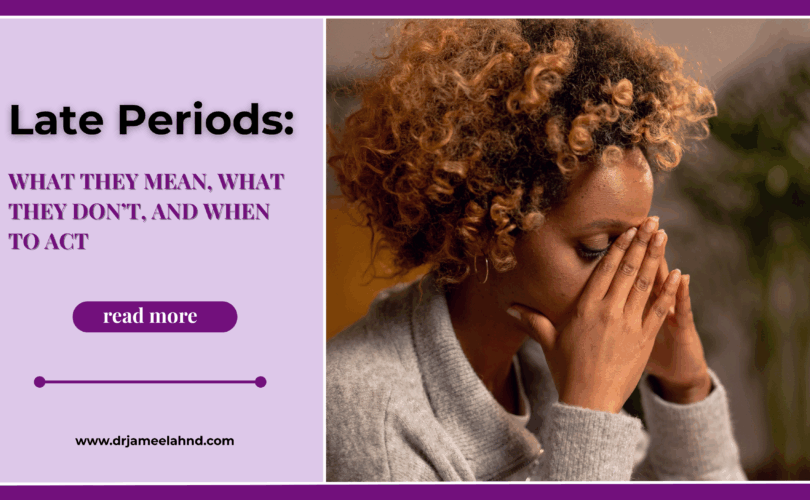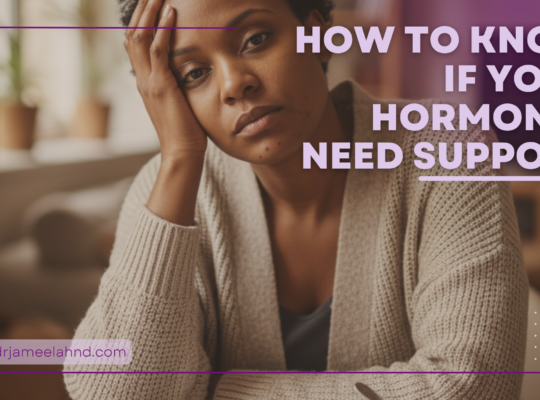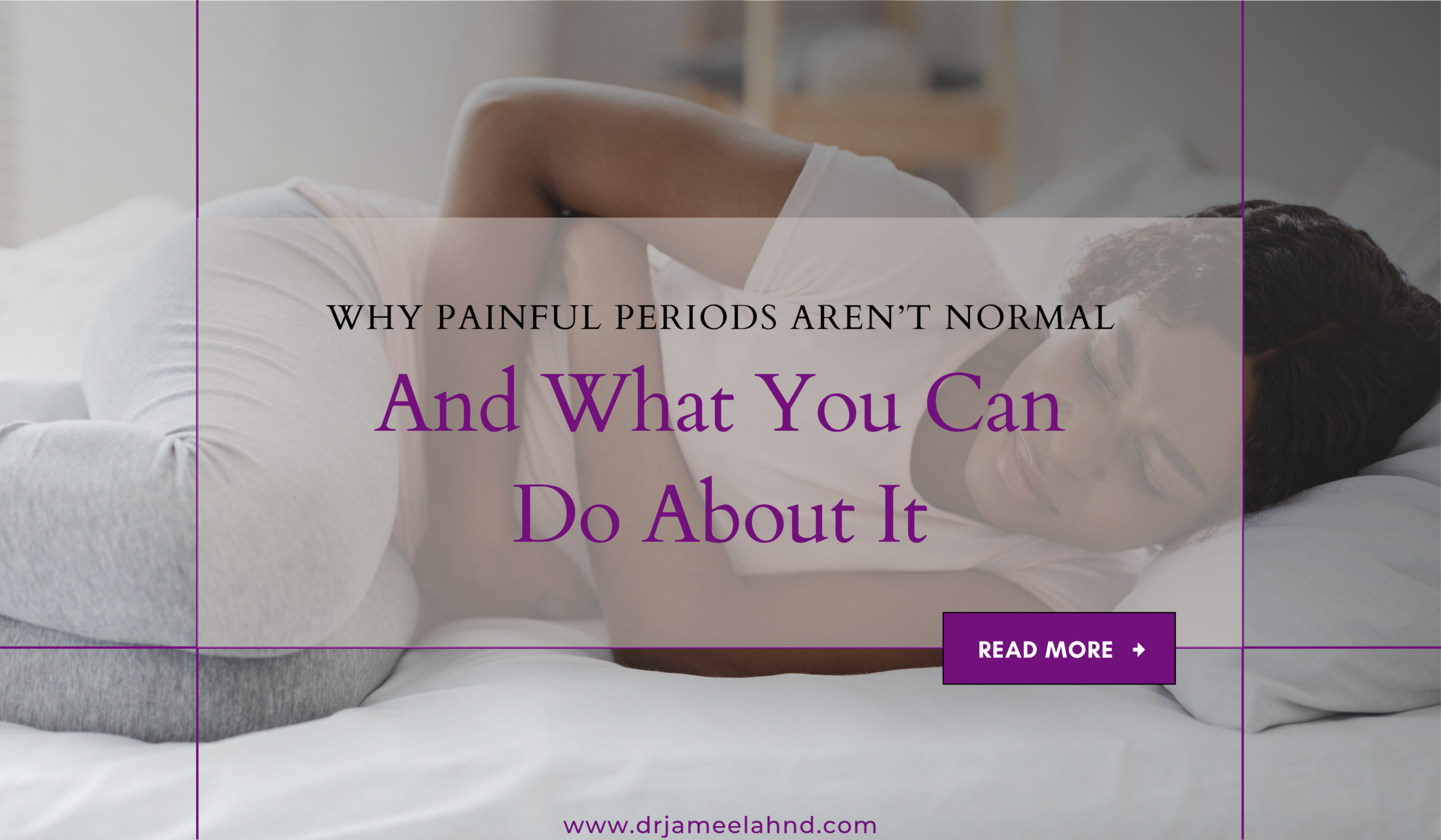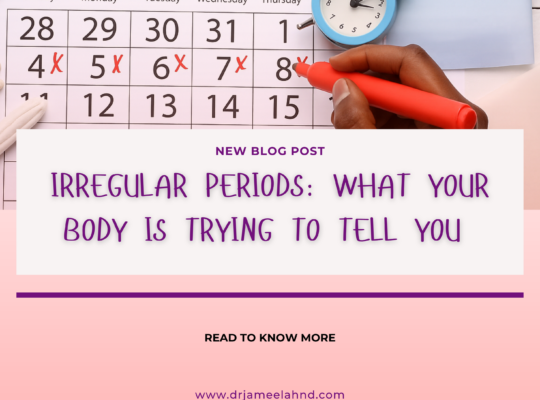Late Periods: What They Mean, What They Don’t, and When to Act
We’ve all had that moment of panic staring at the calendar and realizing your period is late. For some, the first thought is pregnancy. But for many women, especially if pregnancy isn’t even on the table, late periods can feel frustrating and confusing. Your cycle is one of your body’s most powerful monthly check-ins, and when it shifts, it’s a signal that something deeper may be going on.
What a Late Period Doesn’t Always Mean
Late does not always equal pregnancy. That’s the most common misconception I see in practice, and it leads to unnecessary stress. While pregnancy is one possibility, your cycle can be influenced by so much more from your stress levels to your thyroid function.
Some non-pregnancy reasons for late cycles include:
- High stress: Cortisol can suppress ovulation and delay bleeding.
- Thyroid imbalances: Both underactive and overactive thyroids can disrupt your cycle.
- PCOS or insulin resistance: Blood sugar imbalances affect ovulation timing.
- Undereating or over-exercising: The body prioritizes survival over reproduction.
- Perimenopause: Hormones begin shifting in your 30s and 40s.
When a Late Period Is Normal
The average cycle isn’t 28 days like we’ve all been told. A healthy cycle can range anywhere from 24 to 35 days. If your period comes a few days “late” but falls within this range, your body may still be working just fine. A single late cycle after stress, illness, or travel is usually your body’s way of recalibrating.
👉 The key is looking at patterns not just one-off changes.
When a Late Period Is a Red Flag
There are times when late periods deserve a closer look. If you notice consistent delays, or your cycle disappears altogether, it’s your body’s way of waving a red flag.
Some signs to pay attention to include:
- Missing periods for 2–3 months in a row
- Late cycles paired with unexplained fatigue, hair loss, or weight changes
- Late cycles plus acne, irregular bleeding, or intense PMS
- Periods becoming increasingly irregular over time
These are all signals that your hormones are out of balance and need support.
Small Wins You Can Try Right Now
While you’re waiting for answers, there are simple ways to begin supporting your cycle at home:
- Keep a cycle journal (note stress levels, food patterns, sleep, symptoms).
- Eat balanced meals with protein, healthy fats, and fiber to stabilize blood sugar.
- Prioritize 7–9 hours of restful sleep to keep cortisol in check.
- Stay hydrated and reduce stimulants like caffeine, which can stress your adrenals.
These small shifts help regulate your body’s rhythm but they’re only the first step.
Why You Still Need Root-Cause Care
A late period is not just about timing it’s about what’s happening beneath the surface. Without looking at hormones, thyroid function, stress response, and lifestyle patterns, it’s nearly impossible to fully restore balance. That’s where my Hormone Harmony Program comes in. Over four months, I help women uncover the real reasons behind their irregular cycles and create a personalized plan with nutrition, herbs, supplements, and lifestyle shifts.
✨ You don’t have to “just wait and see.” You can take action now.
Ready to Get Back in Sync?
If your period keeps ghosting you and you’re tired of guessing, I’d love to help you find clarity. My Hormone Harmony Program is designed to get to the root cause of late and irregular cycles so you can finally feel in rhythm with your body again.
👉 Click here to book your consultation and take the first step toward hormone balance.









